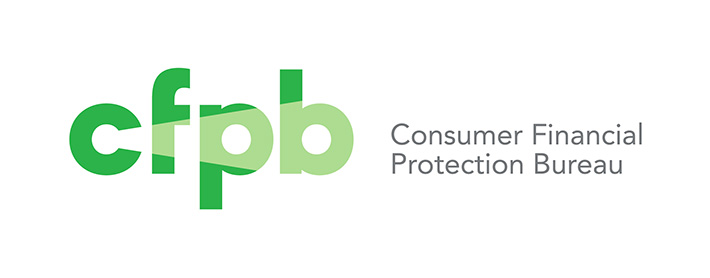Regulation
Think The New California Disclosure Law is Just About a Disclosure Form? Think Again
September 13, 2022 “We’re one of the good guys so of course we’ll comply and include the form with our contracts.”
“We’re one of the good guys so of course we’ll comply and include the form with our contracts.”
Variations of the above phrase have been oft-repeated in the last few months by participants in the commercial finance industry when queried by deBanked about California’s new disclosure law. Several companies have shared that they are prepared for what’s to come, but are they? The regulations go into effect on December 9th and begin a new chapter of compliance for the industry.
Though one might be aware that California will require specific disclosures on commercial finance contracts (including purchases of future sales), Katherine C. Fisher, Partner at Hudson Cook, LLP, explained that the breadth of the state’s law will likely require changes to a funding company’s operational processes as well. Fisher told deBanked that there’s not just the matter of disclosing but also the matter of what triggers a disclosure having to be made. What might otherwise be considered the normal discourse between a funding provider and a customer prior to a deal being consummated is now an area requiring close examination.
“If a broker sends a text to a merchant with the offers, could it trigger this?” is one scenario she posed about the threshold for disclosure.
The funding provider needs to know the answer because once the disclosure requirement is triggered, the broker needs to relay back the details of the offers made, the specific disclosures provided, and the timestamp of when this took place. All of this data then needs be stored by the funding provider to maintain compliance.
And funding providers will need to be vigilant.
“The funder is responsible for broker compliance,” Fisher said.
The entire process of who-said-what, when, and how will suddenly become a realm requiring tight control it seems. And that all comes back to the form itself, which is not all that simple either.
 California will require funding providers to estimate an APR on a purchase transaction using one of two methods: the Historical Method or the Underwriting Method. While the methodology selected is probably best left to qualified counsel to assist with, the likely deviation of a future estimated APR from a backwards-looking APR was a reality considered by state regulators. To bridge this gap, California requires that funding providers disclose reasonably anticipated true-up scenarios. A true-up in this instance refers to the already well-established option for a merchant to perform a monthly reconciliation of payments if the amount collected is above or below the purchased percentage specified in the contract.
California will require funding providers to estimate an APR on a purchase transaction using one of two methods: the Historical Method or the Underwriting Method. While the methodology selected is probably best left to qualified counsel to assist with, the likely deviation of a future estimated APR from a backwards-looking APR was a reality considered by state regulators. To bridge this gap, California requires that funding providers disclose reasonably anticipated true-up scenarios. A true-up in this instance refers to the already well-established option for a merchant to perform a monthly reconciliation of payments if the amount collected is above or below the purchased percentage specified in the contract.
Though the very nature of the reconciliation is a consequence of not being able to predict the future exactly, California’s law requires that funding providers disclose the dates and amounts of the true-ups that they reasonably anticipate. Such concepts and mathematics, once perhaps the subjective domain of a funding provider’s in-house underwriters will soon be subject to regulatory scrutiny for total accuracy. And this just scratches the surface.
The scope of this law is so unique and technical that the Hudson Cook law firm spent a considerable amount of time preparing a guide on this very subject. deBanked saw some of the pages of this guide during a call.
Fisher, meanwhile, insisted that compliance in California is different than compliance with the law recently enacted in Virginia and that if funding providers wait until December to begin preparing, it will probably be too late to be ready in time.
“This is more than just a form,” Fisher said. “You need to spread the word about it.”
Funders Weigh in on the New Disclosure Law in Virginia
August 10, 2022 “I think there are pros and cons on this law,” said Boris Kalendarev, CEO at Specialty Capital, in regards to the recently enacted sales-based financing disclosure law in Virginia. “I’m on the pro side and I think first and foremost it allows the good funders and the good brokers in the space to operate in the right manner.”
“I think there are pros and cons on this law,” said Boris Kalendarev, CEO at Specialty Capital, in regards to the recently enacted sales-based financing disclosure law in Virginia. “I’m on the pro side and I think first and foremost it allows the good funders and the good brokers in the space to operate in the right manner.”
The law technically went into effect on July 1st, shaking things up for funding providers and brokers alike, particularly through a set of uniform disclosures that are required every time a contract is put in front of a Virginia-based business.
“It holds a broker more responsible for the transaction that they’re going to complete,” said Sharmylla Siew, Senior Underwriter at Lending Valley. “It builds a deeper bond between the broker and the merchant. And it also creates a better bond between the broker and the funder.”
Echoing Siew’s perspective, Kalendarev also believes that being clear creates an honest business space for the broker, merchant, and funder.
“I think transparency is really the right way to run this business. Let’s try to make sure there’s even more transparency,” said Kalendarev.
One intent behind the law is to provide the business customer with all of the pertinent information in a digestible format. Notably, this includes the commission that a broker may be receiving from the funder.
 “I do believe that it should be fully transparent on both sides to understand the transaction in full,” said Dylan J. Howell, CEO of Liquidibee. “The merchant should understand that the broker is getting compensated. And if he decides that the broker deserves an additional commission on top of what he’s getting paid from the funder, well, that’s an informed decision between the merchant and broker to come to an agreement with.”
“I do believe that it should be fully transparent on both sides to understand the transaction in full,” said Dylan J. Howell, CEO of Liquidibee. “The merchant should understand that the broker is getting compensated. And if he decides that the broker deserves an additional commission on top of what he’s getting paid from the funder, well, that’s an informed decision between the merchant and broker to come to an agreement with.”
Howell Suggested that some of what is required would be expected in other types of deals.
“If you would go out and buy a $500,000 house, you get to the closing table and you look at the bill, it says it’s $545,000, but the purchase price is 500,000, you would want a reconciliation page to show where that 45,000 of additional capital is going,” Howell said. “And it’s no different than in this transaction, in my opinion.”
Banks and credit unions were exempt from the law but some view targeted regulations like this one as a way to raise the bar and credibility of sales-based financing products in general.
“Merchants who wouldn’t have considered an MCA as a practical form of funding in the past may decide to explore this avenue knowing that the industry is being held to a higher standard of practice,” Howell said.
Siew, of Lending Valley, echoed same.
“I am actually very excited about the new regulations, and I feel that it would make a huge impact on the MCA industry,” she said.
Fintech and Transparency in Small Business Lending
July 13, 2022 “Increasing the flow of capital to American small businesses is one of this committee’s foundational goals,” said US Rep Dean Philips (D), chairman of the House Small Business Committee, on Wednesday. Phillips was presiding over a hearing on fintech and transparency in small business lending
“Increasing the flow of capital to American small businesses is one of this committee’s foundational goals,” said US Rep Dean Philips (D), chairman of the House Small Business Committee, on Wednesday. Phillips was presiding over a hearing on fintech and transparency in small business lending
Witnesses invited to testify on the subject included:
- Sean Salas, CEO, Camino Financial
- Joyce Klein, Senior Director, Aspen Institute
- Diane Patterson, Regional Director, Twin Cities Small Business Development Center
- John Griffin, Chair in Finance, McCombs School of Business, University of Texas
Both members of the Committee and the witnesses shared varying opinions on how to accomplish transparency. Although this is the not the first congressional hearing of its kind, the timing indicates that federal interest is piggy-backing off of similar conversations playing out in several state capitols. The hour-long video is below:
Virginia Disclosure Law Quietly Goes Into Effect
July 6, 2022 On July 1st, Virginia’s “sales-based financing” disclosure law quietly went into effect. The Delegate from Virginia that introduced it in the first place, Kathy Tran, marked the occasion by retweeting a caucus announcement that it was live. Elsewhere, it was hardly mentioned. It was even absent from the Official Code of Virginia where it was supposed to be ceremoniously entered on July 1st. The State insists that its omission is just a glitch.
On July 1st, Virginia’s “sales-based financing” disclosure law quietly went into effect. The Delegate from Virginia that introduced it in the first place, Kathy Tran, marked the occasion by retweeting a caucus announcement that it was live. Elsewhere, it was hardly mentioned. It was even absent from the Official Code of Virginia where it was supposed to be ceremoniously entered on July 1st. The State insists that its omission is just a glitch.
“There have been significant technical difficulties during the 2022 code upload process,” reads a notice on the Virginia State Law Portal. “Due to these difficulties, the portal does not currently reflect the changes to enacted law. The Division of Legislative Automated Systems and the publisher are working diligently to resolve these issues as quickly as possible. Once the data is obtained from the publisher in the correct format, the standard quality check of the entire body of law that went into effect July 1 will be conducted.”
The law focuses primarily on disclosures. Sounds simple enough, but in the preceding weeks the draft disclosure form was met with some resistance by potentially covered parties because of how little time there was to integrate it into their systems and processes. Regardless, at least one small business funding company told deBanked off the record that ambiguous language and terms in the law had led to the decision to cease doing business in the State of Virginia, at least for now. Their focus is shifting toward compliance with the upcoming California and New York disclosure laws where the population pools are larger and the soon-to-be enacted requirements are seemingly more complex. Utah too will soon implement its own version of a disclosure law.
For commercial finance brokers, the defining elements of the Virginia law are that commissions earned will have to be disclosed to customers and that they’ll have to register their businesses with the State to even continue doing business there.
US Chamber of Commerce Hints it is Prepared for Litigation Against the CFPB
June 29, 2022 The US Chamber of Commerce is not thrilled with the CFPB’s attempt to allegedly expand its power. A June 28 letter fired off by the Chamber to CFPB Director Rohit Chopra asks that the agency rescind amendments added to its Supervision and Examination Manual. Specifically, it wants the CFPB to limit its enforcement of anti-discrimination laws to the statutory boundaries established by congress. The CFPB recently announced, however, that it would start to enforce its own self-created anti-discrimination rules and policies above and beyond what is permitted by existing law.
The US Chamber of Commerce is not thrilled with the CFPB’s attempt to allegedly expand its power. A June 28 letter fired off by the Chamber to CFPB Director Rohit Chopra asks that the agency rescind amendments added to its Supervision and Examination Manual. Specifically, it wants the CFPB to limit its enforcement of anti-discrimination laws to the statutory boundaries established by congress. The CFPB recently announced, however, that it would start to enforce its own self-created anti-discrimination rules and policies above and beyond what is permitted by existing law.
“The Bureau’s self-expansion of its authority will impose significant burdens on banks, financial markets, and the consumers they serve,” the Chamber writes.
CFPB Director Chopra has garnered a bit of reputation for his views. He was previously a director of the FTC and rode into the top role of the CFPB through the Biden Administration. Chopra now finds himself in the crosshairs of the US Chamber of Commerce, the “world’s largest business organization.” With more than three million members, the Chamber warned that if the agency attempts to enforce its “unlawful” powers, that it is prepared to engage in litigation.
“Instead of perpetuating an improper exercise of authority, the Bureau should respect the limits of its authority and rescind these troubling amendments,” the Chamber’s Chief Counsel wrote on “Litigation Center” letterhead. “We encourage you to follow this course. The Chamber will not hesitate to take legal action to defend businesses (and the economy that they serve) against the Bureau’s unlawful actions.”
Two versions of the letter were sent. This is a link to one of them.
Time’s Almost Up: Are You Ready to Comply With the New Virginia Disclosure Law?
June 26, 2022 Remember when Virginia passed a landmark sales-based financing law? Well, it’s supposed to go into effect on July 1st.
Remember when Virginia passed a landmark sales-based financing law? Well, it’s supposed to go into effect on July 1st.
This is a draft of what the disclosure form is supposed to look like, though with only days left to begin compliance, it hasn’t even been 100% finalized.
Notably, funders will have to begin disclosing to merchants the amount of compensation being paid to the broker in connection with a deal. Also, by November 1st, funders and brokers will have to register their business with the State if they wish to continue working with Virginia-based businesses, a process that would include a background check and registration fees.
Please consult an attorney for official guidance on compliance.
Should financial literacy be a requirement in school curriculums?
June 24, 2022 Michigan recently became the 14th state in the U.S. to mandate high schoolers to take a half-credit finance education course before graduating. This mandate was put into effect by the HB 5190 bill signed by Gov. Gretchen Whitmer just last week.
Michigan recently became the 14th state in the U.S. to mandate high schoolers to take a half-credit finance education course before graduating. This mandate was put into effect by the HB 5190 bill signed by Gov. Gretchen Whitmer just last week.
“As a mom, I want every kid who graduates in Michigan to enter the world with a diverse set of skills and knowledge, and that must include financial literacy,” said Whitmer.
Along with Michigan; Alabama, Florida, Georgia, Iowa, Mississippi, Missouri, Nebraska, North Carolina, Ohio, Rhode Island, Tennessee, Utah and Virginia all require high school students to take personal finance courses.
According to a survey conducted by Next Gen Personal Finance, 22.7% of US high school students will have guaranteed access to a personal finance course. An additional 48.2% of students in 2022 have access to one either as an elective or as a possible option to fulfill a graduation requirement. Only 4.87% have no access to any financial education in any of their courses.
In non-guaranty states, personal finance courses were least likely to be available in city areas with only 1 in 20 receiving personal financial education. In rural areas, that figure increased to 1 in 7. The numbers also fluctuate based upon the schism in location, race, and socioeconomic status.
The importance of financial education early on can’t be overstated as the benefits of it seem to wane into adulthood, almost to zero.
According to Mariel Beasley, principal at the Center for Advanced Hindsight at Duke University and Co-Director of the Common Cents Lab (CCL), “Content-based financial education classes [for adults] only accounted for .1 percent variation in financial behavior.” She added, “We like to joke that it’s not zero but it’s very, very close.”
No More Delays? California Finalizes Commercial Financing Disclosure Rules – Sets December 9th as Effective Date
June 9, 2022 Four years after California passed a commercial financing disclosure law, the debate over what the final rules should be has finally ended. On Thursday, the Department of Financial Protection and Innovation’s rules were approved and published. The law is scheduled to take effect on December 9, 2022.
Four years after California passed a commercial financing disclosure law, the debate over what the final rules should be has finally ended. On Thursday, the Department of Financial Protection and Innovation’s rules were approved and published. The law is scheduled to take effect on December 9, 2022.
The full text of the rules are available here.
Given the length and complexity, readers are advised to consult with a knowledgeable attorney for the best immediate interpretation of the language and its implications. The rules cover merchant cash advance, factoring, leasing, and various forms of lending.
To read up on the history of this law, you can review our past coverage.





























